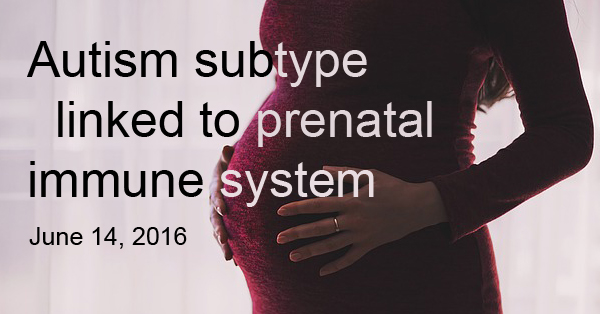Check out other stories from the Latest News
Prenatal Immune System Proteins in Mom linked to ASD
By Chelsea E. Toledo, M.A. on June 14, 2016

Background: Autism Spectrum Disorder (ASD) is characterized by social, behavioral and communicative differences and can be accompanied by intellectual disability. While genetics appear to play a strong role in the risk of having an ASD diagnosis, research has suggested that environmental factors – such as mothers’ immune activity during pregnancy – could factor into that risk, as well.
What’s New: On May 24, 2016, the journal Molecular Psychiatry published a study examining the relationship between a mother’s immune system biomarkers during pregnancy and children’s likelihood of having ASD. The researchers focused on mothers who had given blood samples as part of a public health study focused on early ASD indicators while pregnant, with a total of 1031 resulting children. In this group, 415 later received an ASD diagnosis, 188 had developmental delay without ASD, and 428 had typical development. The researchers further divided the ASD group into those with and without an accompanying intellectual disability and found that the mothers of the 184 children with both ASD and intellectual disability had higher levels of multiple immune-related proteins midway through the pregnancies than the mothers of children from all the other groups.
Why it’s important: The trends observed in proteins in expectant mothers’ blood proteins suggests that inflammation – the result of an immune response – may play a key role in the development of ASD with intellectual disability. Furthermore, these differences may help researchers to better understand sub-types of ASD.
Help me understand :
| Source(s) : |
| Tweet |

